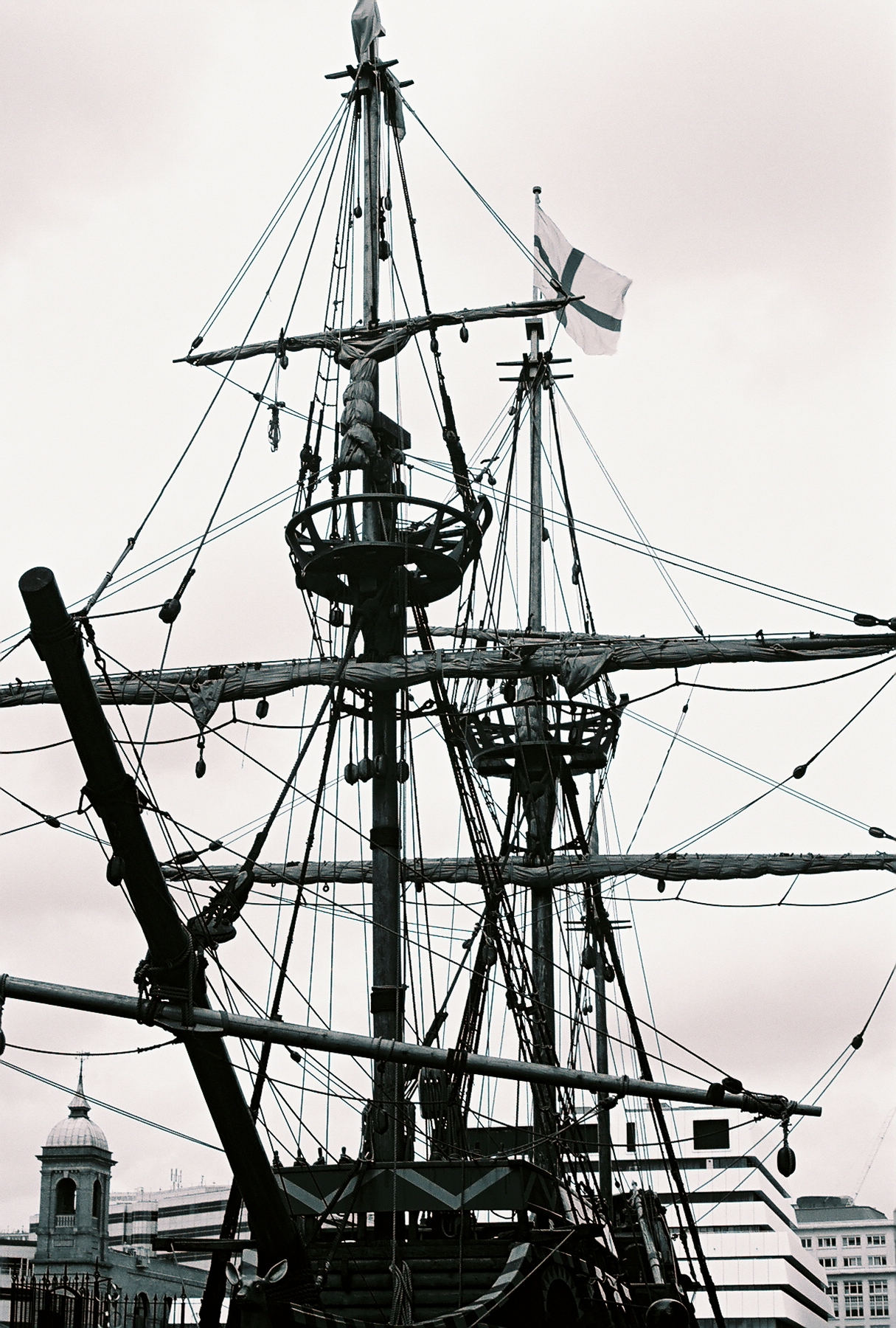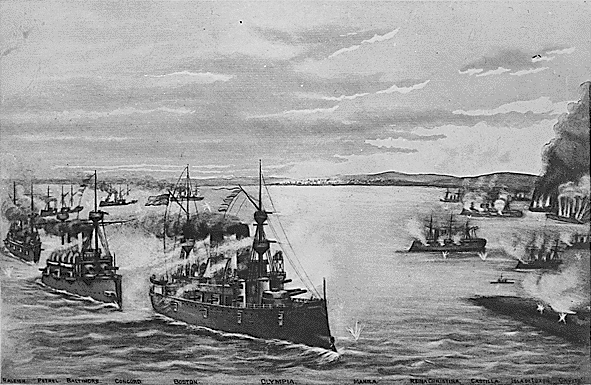|
SMS Prinzess Wilhelm
SMS ("His Majesty's Ship ") was a protected cruiser of the German Imperial Navy (). She was the second ; her only sister ship was . was laid down in 1886 at the shipyard in Kiel, launched in September 1887, and commissioned into the fleet in November 1889. The cruiser was named after Augusta Victoria of Schleswig-Holstein, first wife of Kaiser Wilhem II. As built, the ship was armed with a main battery of fourteen guns and had a top speed of . In 1895, was deployed to East Asian waters, where she frequently served as the flagship of the East Asia Cruiser Division. She was one of the three ships that participated in the seizure of the Jiaozhou Bay Leased Territory under the command of Rear Admiral Otto von Diederichs. She subsequently was present in the Philippines in the immediate aftermath of the Battle of Manila Bay between American and Spanish squadrons during the Spanish–American War in 1898. returned to Germany in 1899 and was modernized in 1899–1903. She was ... [...More Info...] [...Related Items...] OR: [Wikipedia] [Google] [Baidu] |
German Empire
The German Empire (),Herbert Tuttle wrote in September 1881 that the term "Reich" does not literally connote an empire as has been commonly assumed by English-speaking people. The term literally denotes an empire – particularly a hereditary empire led by an emperor, although has been used in German to denote the Roman Empire because it had a weak hereditary tradition. In the case of the German Empire, the official name was , which is properly translated as "German Empire" because the official position of head of state in the constitution of the German Empire was officially a "presidency" of a confederation of German states led by the King of Prussia who would assume "the title of German Emperor" as referring to the German people, but was not emperor of Germany as in an emperor of a state. –The German Empire" ''Harper's New Monthly Magazine''. vol. 63, issue 376, pp. 591–603; here p. 593. also referred to as Imperial Germany, the Second Reich, as well as simply Germany, ... [...More Info...] [...Related Items...] OR: [Wikipedia] [Google] [Baidu] |
Imperial German Navy
The Imperial German Navy or the Imperial Navy () was the navy of the German Empire, which existed between 1871 and 1919. It grew out of the small Prussian Navy (from 1867 the North German Federal Navy), which was mainly for coast defence. Wilhelm II, German Emperor, Kaiser Wilhelm II greatly expanded the navy. The key leader was Admiral Alfred von Tirpitz, who greatly expanded the size and quality of the navy, while adopting the sea power theories of American strategist Alfred Thayer Mahan. The result was a Anglo-German naval arms race, naval arms race with Britain, as the German navy grew to become one of the greatest maritime forces in the world, second only to the Royal Navy. The German surface navy proved ineffective during the First World War; its only major engagement, the Battle of Jutland, was a draw, but it kept the surface fleet largely in port for the rest of the war. The submarine fleet was greatly expanded and threatened the British supply system during the Atlantic ... [...More Info...] [...Related Items...] OR: [Wikipedia] [Google] [Baidu] |
Rigging
Rigging comprises the system of ropes, cables and chains, which support a sailing ship or sail boat's masts—''standing rigging'', including shrouds and stays—and which adjust the position of the vessel's sails and spars to which they are attached—the ''running rigging'', including halyards, braces, sheets and vangs. Etymology According to the Encyclopædia Britannica Eleventh Edition "rigging" derives from Anglo-Saxon ''wrigan'' or ''wringing'', "to clothe". The same source points out that "rigging" a sailing vessel refers to putting all the components in place to allow it to function, including the masts, spars, sails and the rigging. Types of rigging Rigging is divided into two classes, ''standing'', which supports the mast (and bowsprit), and ''running'', which controls the orientation of the sails and their degree of reefing. Configurations differ for each type of rigging, between ''fore-and-aft rigged'' vessels and ''square-rigged'' vessels. Standing Standin ... [...More Info...] [...Related Items...] OR: [Wikipedia] [Google] [Baidu] |
German Imperial Admiralty
The German Imperial Admiralty (german: Kaiserliche Admiralität) was an imperial naval authority in the German Empire. By order of Kaiser Wilhelm I the Northern German Federal Navy Department of the North German Confederation (1866–71), which had been formed from the Prussian Navy Department (Marineministerium), became on 1 January 1872 the German Imperial Admiralty (''Kaiserliche Admiralität''). The head of the Admiralty (Chef der Admiralität) administered the Imperial Navy under the authority of the imperial chancellor and the supreme command of the Emperor (''Kaiserliche Kommandogewalt''). It lasted until 1889, undergoing several reorganizations, but proved an impractical arrangement given the constant growth and the expansion of the Imperial Navy. Finally it was abolished in April 1889 and its duties divided among three new entities: German Imperial Naval High Command (''Kaiserliches Oberkommando der Marine''), the Imperial Naval Office (''Reichsmarineamt''), and the ... [...More Info...] [...Related Items...] OR: [Wikipedia] [Google] [Baidu] |
Leo Von Caprivi
Georg Leo Graf von Caprivi de Caprara de Montecuccoli (English: ''Count George Leo of Caprivi, Caprara, and Montecuccoli''; born Georg Leo von Caprivi; 24 February 1831 – 6 February 1899) was a German general and statesman who served as the chancellor of the German Empire from March 1890 to October 1894. Caprivi promoted industrial and commercial development, and concluded numerous bilateral treaties for reduction of tariff barriers. However, this movement toward free trade angered the conservative agrarian interests, especially the Junkers. He promised educational reforms to the Catholic Center party which would increase their influence, but failed to deliver. As part of Kaiser Wilhelm's "new course" in foreign policy, Caprivi abandoned Bismarck's military, economic, and ideological cooperation with the Russian Empire, which historians consider a major mistake. Even worse, Caprivi misjudged multiple opportunities to open good relations with the United Kingdom of Great Britain ... [...More Info...] [...Related Items...] OR: [Wikipedia] [Google] [Baidu] |
Irene - Brassey's Naval Annual 1888-9
Irene is a name derived from εἰρήνη (eirēnē), the Greek for "peace". Irene, and related names, may refer to: * Irene (given name) Places * Irene, Gauteng, South Africa * Irene, South Dakota, United States * Irene, Texas, United States * Irene, West Virginia, United States * Irene Lake, Quebec, Canada * Lake Irene, a small lake in Rocky Mountain National Park, Colorado, United States * Lake Irene, a lake in Minnesota, United States * Irene River (Opawica River tributary), a tributary of the Opawica River in Quebec, Canada * Irene River (New Zealand), a river of New Zealand * Eirini metro station, an Athens metro station in Ano Maroussi, Greece Storms and hurricanes * Tropical Storm Irene (1947) * Tropical Storm Irene (1959) * Hurricane Irene–Olivia (1971) * Hurricane Irene (1981), part of the 1981 Atlantic hurricane season * Hurricane Irene (1999) * Hurricane Irene (2005) * Hurricane Irene (2011) Arts and entertainment Films and anime * ''Irene'' (1926 film), a ... [...More Info...] [...Related Items...] OR: [Wikipedia] [Google] [Baidu] |
Hulk (ship)
A hulk is a ship that is afloat, but incapable of going to sea. Hulk may be used to describe a ship that has been launched but not completed, an abandoned wreck or shell, or to refer to an old ship that has had its rigging or internal equipment removed, retaining only its buoyant qualities. The word hulk also may be used as a verb: a ship is "hulked" to convert it to a hulk. The verb was also applied to crews of Royal Navy ships in dock, who were sent to the receiving ship for accommodation, or "hulked". Hulks have a variety of uses such as housing, prisons, salvage pontoons, gambling sites, naval training, or cargo storage. In the days of sail, many hulls served longer as hulks than they did as functional ships. Wooden ships were often hulked when the hull structure became too old and weak to withstand the stresses of sailing. More recently, ships have been hulked when they become obsolete or when they become uneconomical to operate. Sheer hulk A sheer hulk (or shear hulk) w ... [...More Info...] [...Related Items...] OR: [Wikipedia] [Google] [Baidu] |
Naval Mine
A naval mine is a self-contained explosive device placed in water to damage or destroy surface ships or submarines. Unlike depth charges, mines are deposited and left to wait until they are triggered by the approach of, or contact with, any vessel or a particular vessel type, akin to anti-infantry vs. anti-vehicle mines. Naval mines can be used offensively, to hamper enemy shipping movements or lock vessels into a harbour; or defensively, to protect friendly vessels and create "safe" zones. Mines allow the minelaying force commander to concentrate warships or defensive assets in mine-free areas giving the adversary three choices: undertake an expensive and time-consuming minesweeping effort, accept the casualties of challenging the minefield, or use the unmined waters where the greatest concentration of enemy firepower will be encountered. Although international law requires signatory nations to declare mined areas, precise locations remain secret; and non-complying individ ... [...More Info...] [...Related Items...] OR: [Wikipedia] [Google] [Baidu] |
Spanish–American War
, partof = the Philippine Revolution, the decolonization of the Americas, and the Cuban War of Independence , image = Collage infobox for Spanish-American War.jpg , image_size = 300px , caption = (clockwise from top left) , date = April 21 – August 13, 1898() , place = , casus = , result = American victory *Treaty of Paris (1898), Treaty of Paris of 1898 *Founding of the First Philippine Republic and beginning of the Philippine–American War * German–Spanish Treaty (1899), Spain sells to Germany the last colonies in the Pacific in 1899 and end of the Spanish Empire in Spanish colonization of the Americas, America and Asia. , territory = Spain relinquishes sovereignty over Cuba; cedes Puerto Rico, Guam and the Philippine Islands to the United States. $20 million paid to Spain by the United States for infrastructure owned by Spain. , combatant1 = United State ... [...More Info...] [...Related Items...] OR: [Wikipedia] [Google] [Baidu] |
Battle Of Manila Bay
The Battle of Manila Bay ( fil, Labanan sa Look ng Maynila; es, Batalla de Bahía de Manila), also known as the Battle of Cavite, took place on 1 May 1898, during the Spanish–American War. The American Asiatic Squadron under Commodore George Dewey engaged and destroyed the Spanish Pacific Squadron under ''Contraalmirante'' ( Rear admiral) Patricio Montojo. The battle took place in Manila Bay in the Philippines, and was the first major engagement of the Spanish–American War. The battle was one of the most decisive naval battles in history and marked the end of the Spanish colonial period in Philippine history. Tensions between Spain and the United States worsened over the Spanish conduct during their efforts to quell the Cuban War of Independence, with many Americans being agitated by largely falsified reports of Spanish atrocities against the Cuban population. In January 1898, fearing the fate of American interests in Cuba due to the war, the cruiser USS ''Maine ... [...More Info...] [...Related Items...] OR: [Wikipedia] [Google] [Baidu] |
Philippines
The Philippines (; fil, Pilipinas, links=no), officially the Republic of the Philippines ( fil, Republika ng Pilipinas, links=no), * bik, Republika kan Filipinas * ceb, Republika sa Pilipinas * cbk, República de Filipinas * hil, Republika sang Filipinas * ibg, Republika nat Filipinas * ilo, Republika ti Filipinas * ivv, Republika nu Filipinas * pam, Republika ning Filipinas * krj, Republika kang Pilipinas * mdh, Republika nu Pilipinas * mrw, Republika a Pilipinas * pag, Republika na Filipinas * xsb, Republika nin Pilipinas * sgd, Republika nan Pilipinas * tgl, Republika ng Pilipinas * tsg, Republika sin Pilipinas * war, Republika han Pilipinas * yka, Republika si Pilipinas In the recognized optional languages of the Philippines: * es, República de las Filipinas * ar, جمهورية الفلبين, Jumhūriyyat al-Filibbīn is an archipelagic country in Southeast Asia. It is situated in the western Pacific Ocean and consists of around 7,641 islands t ... [...More Info...] [...Related Items...] OR: [Wikipedia] [Google] [Baidu] |
Otto Von Diederichs
Ernst Otto von Diederichs (7 September 1843 – 8 March 1918) was an Admiral of the Imperial German Navy (''Kaiserliche Marine''), serving in the Prussian Navy and the North German Federal Navy. Early life Diederichs was born 7 September 1843 in Minden, Westphalia, Kingdom of Prussia (now in North Rhine-Westphalia, Germany). He entered the Prussian naval officer candidate program along a circuitous route, with an incomplete secondary education, a short stint as a Prussian army cadet and service in the merchant marine. After Naval School graduation at Kiel and Atlantic training voyages on the Prussian sail frigate SMS ''Niobe'', he was commissioned ''Unterleutnant zur See'' ieutenant JGin 1867. He served a brief tour aboard the royal yacht ''Grille''. During the Franco-Prussian War of 1870-1871 he commanded the coastal gunboat SMS ''Natter''. Although a French fleet maneuvered in the North Sea where ''Natter'' was deployed, "the French battle plan had little impact on Diederich ... [...More Info...] [...Related Items...] OR: [Wikipedia] [Google] [Baidu] |






